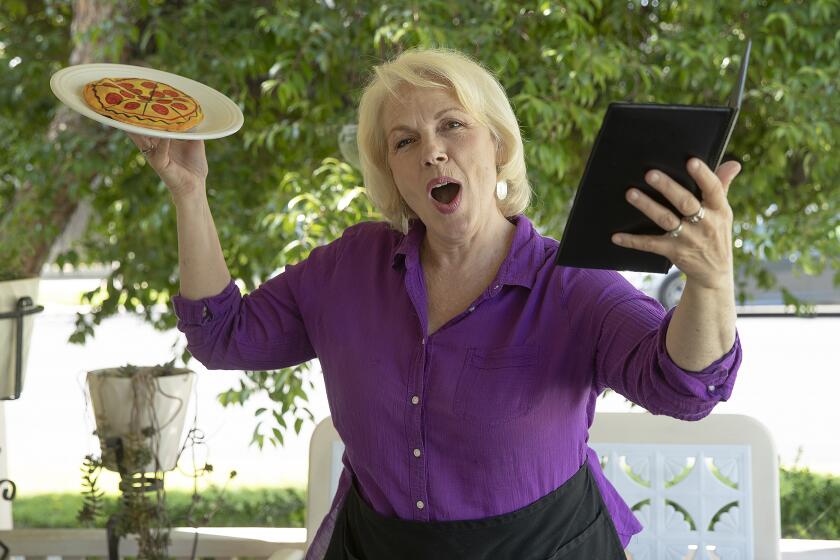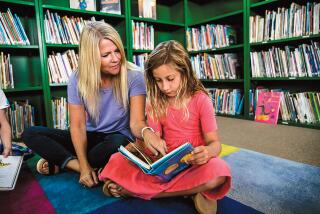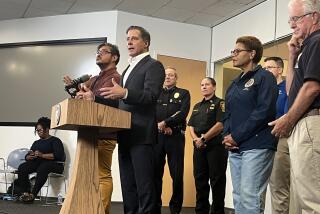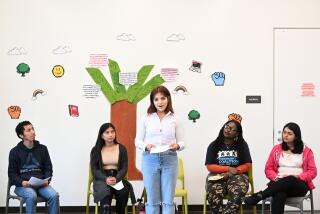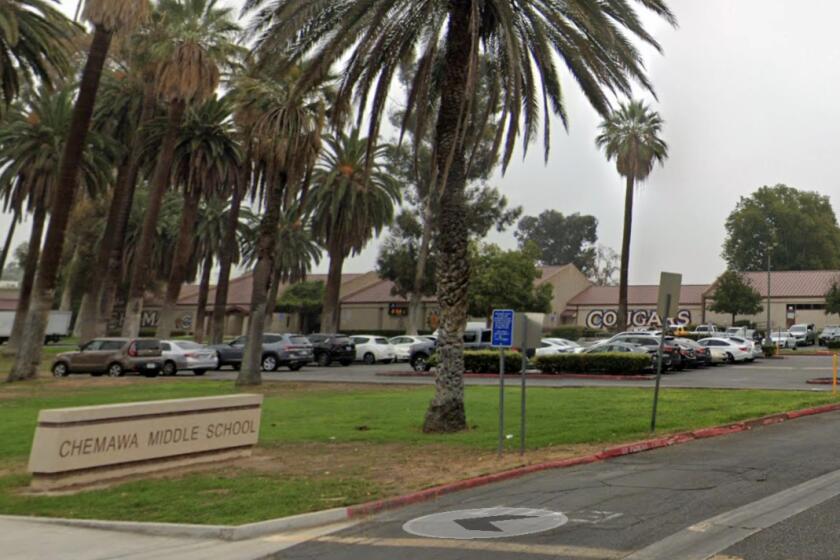The coronavirus outbreak could be the textbook for virtual school
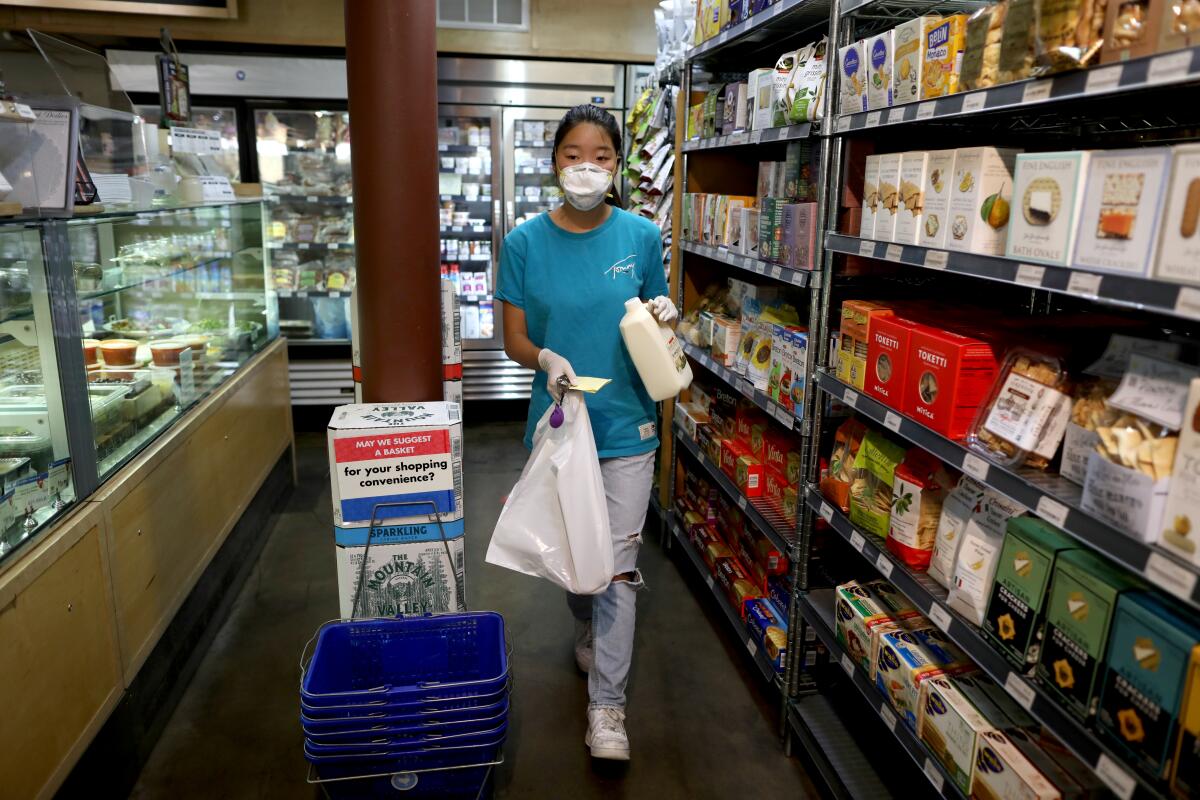
What could possibly be more educational for a teenager than living through a pandemic?
In an ideal world, if I ran a high school, as soon as classes went virtual, I’d have made life right now their textbook.
I’d have had students examining pandemic government and politics, pandemic economics, pandemic psychology. I’d have had them following the epidemiology of the virus in science classes, parsing the statistical models in math classes, collecting oral histories and documenting daily details of this strange time as a way of transforming the study of history into something living and breathing and immediate.
I’d also have ditched the prepared reading lists and had history students read up on the 1918 Spanish flu and every English class read Albert Camus’ “The Plague.” (I’m reading it now for my book group. It could not be more relevant.)
All my students would be asked to keep pandemic journals of these days — when they can’t see their friends and they’re stuck at home with parents and siblings and the hours seem to stretch longer and even the usual texting gets dull.
They’d be asked to try to record as vividly as possible their experiences and feelings, however small, so they can later summon up exactly how this time felt.
Every student also would be asked to interview grandparents, neighbors, local shop owners and front-line workers about what this pandemic time is like for them.
It could all be done safely, by phone. It would be a resource for future historians. It would help build the students’ communication skills. And in a deeper sense it would build their understanding of how profoundly the pandemic is affecting others — and why it’s important, even if you feel invulnerable, to take safety measure to help protect them.
I started thinking about this a month ago, when I first heard from a thoughtful 16-year-old named Mira Kwon, a junior at the Marlborough School, who was just then launching a volunteer, delivery-fee-free service to bring food to older and immunocompromised people.
Had times been normal, Mira, when we first spoke, would have just spent spring break on a tour of East Coast colleges. Instead she’d been at home and bored and looking for something — anything — interesting to do, when her aunt sent her a story about Zoomers to Boomers, a delivery service started by Santa Barbara high school students. Mira picked up the phone and soon after agreed to open the Los Angeles branch.
She had no idea what a big commitment that would be or how much she’d have to figure out to make it work.
Community service, by the way, would play a central role in my ideal coronavirus-era school. I would block out time for it and ask every student to commit to a helpful project — whether it be making masks or reaching out by phone to chat with people living alone or using their social-media skills to crowdfund for those in great need.
For weeks now, during school hours, Mira has been staring at her computer screen, watching her teachers try to cover the same ground they would have covered pre-pandemic. She’s studied for Advanced Placement tests and recently started to take them, just as she would have done before — though they’re now online.
But those experiences grab her — and I believe teach and help her — far less in this moment than her ever-growing extracurricular effort, which constantly hands her new, real-world challenges.
She had to come up with a model for helping people that wouldn’t involve putting either herself or them in danger, which meant learning all about how to sanitize properly and how to wear masks and gloves and take them off safely. She had to recruit friends and figure out to engage them — by learning to delegate and empower them to take on independent roles in the project.
She and two key classmates — Lexi Gluck, who became the director of finance, and Sadie Weil, who took on communications — had to find ways to recruit other students from private and public schools all over the city. They had to learn how to set up delivery schedules and invoices and payments and how to let people know their service existed, by contacting newspapers, radio stations, neighborhood councils, churches and synagogues.
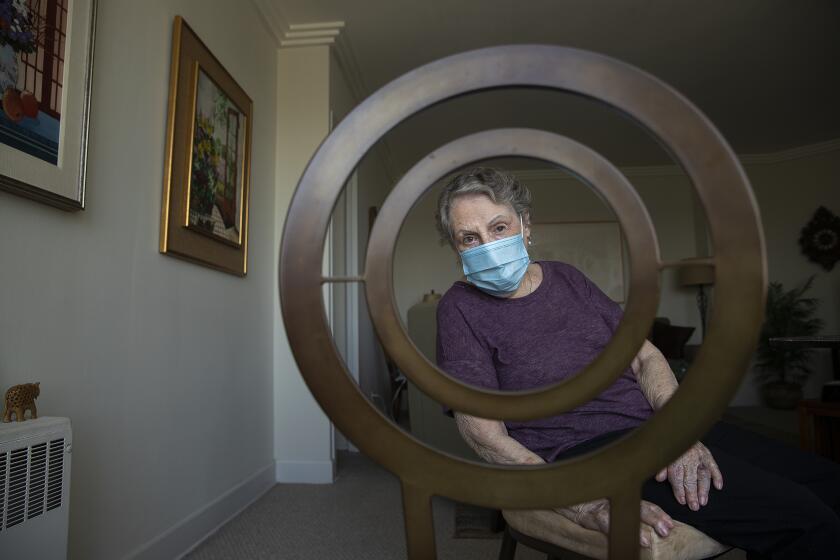
Older does not equal expendable. We need to act in a way that protects our elders from coronavirus
Older Americans deserve our protection from coronavirus. They want to get back to their busy lives, too
Mira knew she didn’t want her volunteers taking daily risks at big supermarkets. She wanted to place orders that could be packed in advance. So she made cold calls until she found Farm Fresh Produce at the Original Farmers Market, which was willing to create standardized assortments of vegetables and fruits for safe pickup.
Then the people who placed orders started asking for other things so she made cold calls again to many more small businesses to form more partnerships. She reached out, too, to the central office of the Original Farmers Market, which got her in touch with its other shops. And when she found people who couldn’t pay for their own groceries, she linked up with a nonprofit to help deliver free meals.
She was tentative at first, she said, about approaching strangers. When a person she delivered to in the early days criticized her (which has happened only one other time since), she called her parents, trembling. She’s tougher now, she told me, from the experience.
On Wednesday afternoon, from a safe distance, I watched Mira fill a delivery at the market. Shopkeepers greeted her warmly. She confidently and efficiently moved from stall to stall, picking up rhubarb, oranges, apples, plums and almonds from Farm Fresh Produce, baby back ribs from Huntington Meats & Sausages, milk and cookies from Monsieur Marcel, a fresh boysenberry pie from Du-par’s.
In the coronavirus shutdown, people turn to GoFundMe to ask strangers for the basics: money for food and rent to survive
The other day, she took a delivery order from Mary Navarro, a disabled woman in her late 70s, who told Mira that it’s hard for her to walk and she’s scared to go out and that she’d been living for at least a week on oatmeal and dried fruit and Campbell’s soup and saltines. A neighbor had told her about Mira’s service. She was so relieved.
Mira brought her the roast chicken and fresh fruit and vegetables she asked for as well as extras — chocolate chip cookies baked by her little sister, salad toppings from her mom.
“It felt like Christmas,” Navarro told me of the delivery. “I’m still glowing from the kindness.”
A year ago, Mira was grounded for throwing three parties when her parents were away. She thought fitting in mattered.
Now she knows other things, like helping those in need, matter much more.
“I think a lot of people are isolated and we’ve been isolated too,” she said of her team of teen volunteers. “So it’s really helpful both for them and for us to have some interaction. I think that’s what’s been meaningful to us, to be able to make someone’s day.”
That’s not something she learned in school.
I know many teachers have been creative during this time. I’d love to hear their stories. I also understand that school curricula and requirements tend to be firmly set, especially in the higher grades — when the goal is to get kids into college.
But if this crisis continues into a new school year, as it is likely to do, I hope schools will go much further than slotting what they always have taught into a smooth online format.
I hope they’ll see the educational power of teaching about this time.
Because if there ever was a teachable moment, it’s now.
More to Read
Sign up for Essential California
The most important California stories and recommendations in your inbox every morning.
You may occasionally receive promotional content from the Los Angeles Times.
